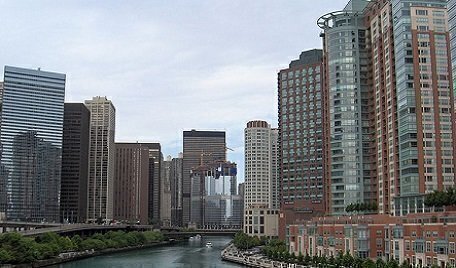The city of Chicago is taking the Trump administration to court in a lawsuit that makes a series of constitutional claims stated in other sanctuary city cases.
 On Monday, Edward Siskel, the city’s corporate counsel, sued U.S. Attorney General Jeff Sessions in the United States District Court for the Northern District of Illinois about new conditions placed on a Justice Department grant application for the Edward Byrne Memorial Justice Assistance Grant. The grant to Chicago last year was for $2.33 million for funds that help pay for police equipment.
On Monday, Edward Siskel, the city’s corporate counsel, sued U.S. Attorney General Jeff Sessions in the United States District Court for the Northern District of Illinois about new conditions placed on a Justice Department grant application for the Edward Byrne Memorial Justice Assistance Grant. The grant to Chicago last year was for $2.33 million for funds that help pay for police equipment.
The stipulations, the city says, violate various constitutional rights.
“These conditions are inconsistent with the Byrne JAG statute itself, with the limitations imposed by the Constitution’s Spending Clause and the Fourth Amendment, and with basic separation of powers principles. Compliance with the conditions would require Chicago to violate Illinois law. And it would undermine public safety and effective policing in the City and upend Chicago’s Welcoming City policy,” the city said in the lawsuit.
On July 25, Sessions announced the new conditions related to the Byrne JAG grant. “From now on, the Department will only provide Byrne JAG grants to cities and states that comply with federal law, allow federal immigration access to detention facilities, and provide 48 hours notice before they release an illegal alien wanted by federal authorities. This is consistent with long-established cooperative principles among law enforcement agencies,” Sessions said.
Chicago’s lawsuit details the legal controversies over the Trump sanctuary cities policy since the President issued an executive order in January that was later enjoined in County of Santa Clara v. Trump. In that federal court in California, on April 25, U.S. District Judge William H. Orrick said only Congress, not the President or other Executive Branch officials, can impose new conditions on how federal money is handed out in grants. Orrick then imposed a national injunction against the Trump executive order. (On July 20, the Trump administration failed in an attempt to dismiss the case.)
Orrick said the order’s wording and the Trump administration’s public comments convinced him that the order was intended to allow the federal government to withhold all funds from jurisdictions that didn’t honor detainers. Specifically, Orrick cited Section 9(a) of the executive order, which reads in part that “the Attorney General shall take appropriate enforcement action against any entity that violates 8 U.S.C. 1373, or which has in effect a statute, policy, or practice that prevents or hinders the enforcement of federal law.”
In Chicago’s lawsuit, the city claims that the Justice Department targeted it and other cities after Judge Orrick’s decision. “After a court enjoined enforcement of much of that [executive] order, the Department of Justice singled out Chicago and eight other cities by demanding, on pain of losing their funding under last year’s Byrne JAG program, that they certify compliance with 8 U.S.C. § 1373,” its lawsuit says.
The city also said Sessions’ announcement of new conditions on the grant, including a requirement that local officials hold immigration suspects for a 48-hour period at a federal agency’s request, made it impossible to meet an early September grant application deadline.
Among the seven counts alleged in the lawsuit are claims that the Justice Department violated the constitutional ideal of separation of powers because “imposing a new condition on a federal grant program amounts to refusing to spend money appropriated by Congress unless that condition is satisfied.”
Also, Chicago made an argument found in other sanctuary cities lawsuits, that the act of forcing a local government to act on behalf of federal officials to enforce a federal law violates the 10th Amendment’s anti-commandeering clause. Citing Justice Antonin Scalia’s opinion in the 1997 Printz v. United States decision, Chicago believed the 10th Amendment “prohibits the federal government from… command[ing] the States’ officers . . . to administer or enforce a federal regulatory program.”
On Monday, the Associated Press said that a Trump administration official issued a comment about the suit and directed the media to look at past administration comments about crime data in Chicago.
“It’s especially tragic that [Chicago’s] mayor is less concerned with that staggering figure than he is spending time and taxpayer money protecting criminal aliens and putting Chicago’s law enforcement at greater risk,” said department spokesman Ian D. Prior in an email to the AP.
Scott Bomboy is the editor in chief of the National Constitution Center.







